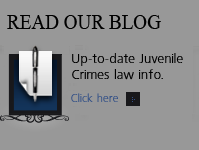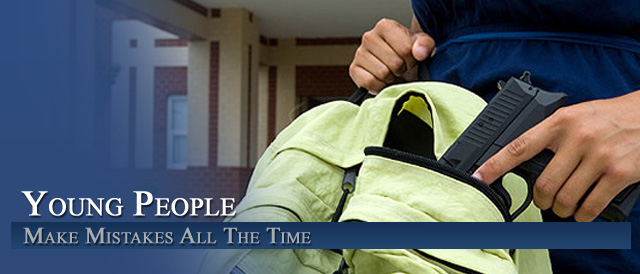
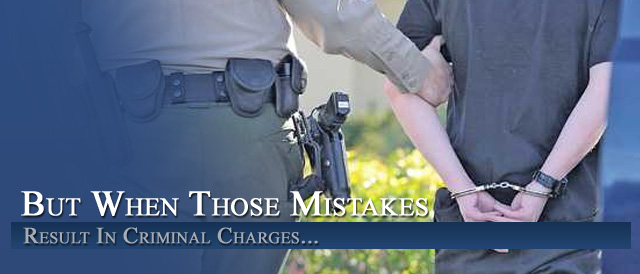
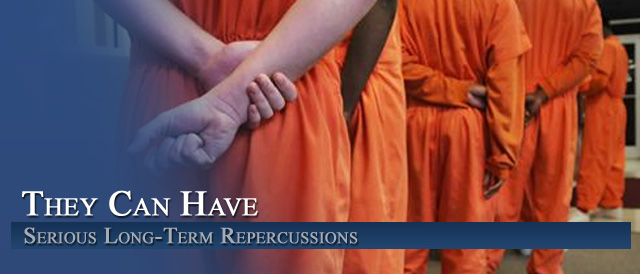
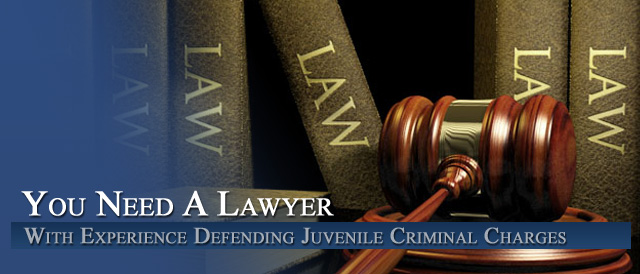
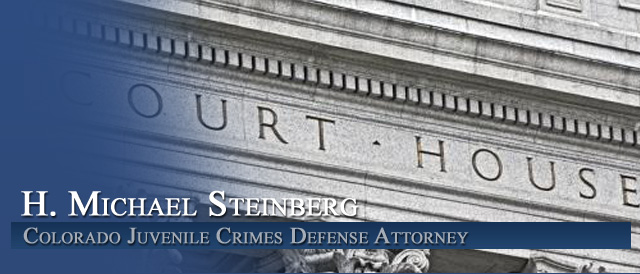
The Colorado Juvenile Justice System and Juvenile Parole – Parole Violations II of II
By Colorado Juvenile Criminal Defense Lawyer – H. Michael Steinberg
The Colorado Juvenile Justice System and Juvenile Parole – Parole Violations – After serving a sentence in the equivalent of juvenile prison – the Division Of Youth Corrections (DYC) a juvenile is place on parole. This article addresses an alleged violation of that parole.
Juvenile Parole Violations In Colorado
Colorado juvenile parole is guided by several laws.. Among them:
Community Placement Parole C.R.S. 19-2-909(1)(b), 19-2-1002, et seq.
The Colorado Juvenile Parole Board grants, denies, defers, suspends, or revokes the parole of a juvenile. The Board is made up of nine part-time members.
Juveniles who receive sentences to the Department of Human Services – Division of Youth Corrections must serve – at the completion of their incarceration – a mandatory parole period of six months. That parole period can be extended by up to 15 months if the sentence is for a crime that involved a serious offense against a person such as, robbery, incest, or child abuse … that would have constituted a felony if committed by an adult, or if certain “special circumstances” have been found to exist.
Here is the law governing parole revocations:
A Closer Look At Colorado Juvenile Parole Revocation C.R.S. 19-2-1004
A juvenile on parole – also known as a “parolee” who violates the conditions of parole is susceptible to having a petition to revoke their parole. When this occurs – usually a no bond warrant is issued for the parolees arrest.
Typical bases for a violation of parole are:
1. the Parole is alleged to have committed a new offense,
2. The parolee has left the state without permission,
3. The parolee refuses to appear before the board to answer charges of technical violations,
4. The parolee tests positive for an illegal or unauthorized substance,
Following the arrest or summons to court for the parolee – the parole officer will request a preliminary hearing – a hearing that addresses the merits or issues regarding the revocation. The juvenile must be present for the violation hearing.
If the Parole Board hearing panel finds that a violation of a condition(s) of parole has been committed – the matter then turns to the sentencing or “disposition” phase of the proceeding.
At the conclusion of the hearing, the hearing panel then advises on it’s “findings and recommendations.” If the findings and recommendations are not appealed – those findings become the final decision of the higher body – the Colorado Juvenile Parole Board.
In accordance with 19-2-1004, C.R.S., a parole officer may bring a juvenile before the Juvenile Parole Board for a violation hearing.
A hearing panel shall determine whether the parolee shall remain on parole in the community with the same or different conditions, or if his/her parole will be revoked and he/she will be returned to custody.
The Colorado Juvenile Justice System and Juvenile Parole – Parole Violations – What The Parole Board – Hearing Division Looks At In Deciding Whether To Revoke Parole
The Hearing Panel looks at:
A. The juvenile’s adjustment or struggles in the community while on parole.
B. The juvenile’s willingness to cooperate with parole supervision.
C. The seriousness of the violation of the conditions of parole.
D. Victim and community safety.
E. The existence of any pending charges and the possibility of any future recommitments on those charges.
F. The need for further institutional/community residential treatment.
G. The existence of a workable parole placement and/or an adequate program in the community.
H. The number and severity of any previous offenses.
The Juvenile Parole Revocation Hearing
The kind of hearing permitted the juvenile is called “an administrative action.” It is not like a criminal trial and the burden of proof that the juvenile has violated specified conditions of parole is only “by a preponderance of the evidence.”
If a violation of parole by the juvenile IS NOT found, the juvenile is returned to “parolee status.”
If a violation of parole by the juvenile IS found, the hearing panel has the authority to modify, suspend, or revoke the juvenile’s parole.
OR the hearing panel may continue a violation hearing as outlined below.
Summary Revocation Of Colorado Juvenile Parole
If a juvenile violates his parole – the usual result is the youth will be sent back to the court for re-sentencing. Another alternative is “parole discharge C.R.S. 19-2-1002(9).” The Parole Board has the authority to discharge a juvenile from parole after the juvenile has served the mandatory parole period of six months but prior to the expiration of his or her period of parole supervision when it appears to the board that there is a reasonable probability that the juvenile will remain at liberty without violating the law or when such juvenile is under the probation supervision of the district court.
Modifications of Juvenile Parole – Explained Further
One result of the parole revocation hearing is to be maintained on parole with the same or different conditions or components of the parole plan.
Temporary “Suspension of Juvenile Parole”
A hearing panel may also temporarily suspend the juvenile’s parole for 30, 60 or 90 days.
1. At the time of the hearing, if the juvenile has not completed his/her commitment, this time period may not exceed 90 days or the remainder of the youth’s commitment; whichever is shorter.
2. At the time of the hearing, if the juvenile has completed his/her commitment, this time period may not exceed 90 days or the remainder of the juvenile’s parole time; whichever is shorter.
Within this time frame, a hearing panel must conduct a Review of Suspension Hearing, which will be scheduled at the violation hearing. The hearing panel may give the parole counselor discretion to reschedule the hearing to an earlier date.
The hearing panel may also approve specific circumstances under which the Parole Officer may return the juvenile to parole status prior to the Review of Suspension Hearing being held. These circumstances shall be recorded on the Hearing Panel
At the Review of Suspension Hearing, the hearing panel may vote to reparole the juvenile with the same or different conditions of parole or to revoke parole. An additional suspension may occur for extenuating circumstances.
Revocation of Parole
If revoked, the juvenile is usually returned to institutional status. Consideration for reparole before the end of the juvenile’s commitment- as noed above – is discretionary.
Parolees Who Have Not Completed Their Commitment
A reparole hearing must be conducted before the end of the juvenile’s commitment. Any youth commitment pursuant to 19-2 – 1002(5), C.R.S., whose parole is revoked, may be subject to a parole extension. If the violation hearing is within 30 days of the commitment end date, then a Post Commitment Re Parole hearing may occur as part of the violation hearing.
Parolees Who Have Completed Their Commitment:
If revoked, the juvenile will continue on post commitment parole status and be returned to a secure facility or community placement. Consideration for reparole before the end of the juvenile’s parole period is at the discretion of the parole officer.
If the juvenile is again paroled, the expiration of his/her parole will remain the same, plus any escape time. Any youth, who is committed pursuant to 19-2- 1002(5), C.R.S., whose parole is revoked, may be subject to a parole extension.
Continuance
This is a vote by a hearing panel is an administrative action that continues the hearing for a specific period of time.
If New “Pending” Charges Are Filed
Pursuant to 19-2-1004(12), C.R.S., a hearing panel may not make a finding on an alleged pending charge. The alleged condition violation may be dropped or the hearing shall be continued until the new case is resolved.
But – What About Successful Completion Of Parole?
If a juvenile is successful on parole – he or she has completed their sentence and is then reintegrated back into the community.
The Colorado Juvenile Justice System and Juvenile Parole – Parole Violations
ABOUT THE AUTHOR: H. Michael Steinberg – Email The Author at: hmichaelsteinberg@colorado-juvenile-crimes-lawyer or call his office at 303-627-7777 during business hours – or call his cell if you cannot wait and need his immediate assistance – 720-227-7777.
If you are charged with A Colorado crime or you have questions about The Colorado Juvenile Justice System and Juvenile Parole – Parole Violations, please call our office. The Law Offices of H. Michael Steinberg, in Denver, Colorado, provide criminal defense clients with effective, efficient, intelligent and strong legal advocacy. We can educate you and help you navigate the stressful and complex legal process related to your criminal defense issue.
H. Michael Steinberg, is a Denver, Colorado criminal defense lawyer with over 40 years of day to day courtroom experience – specializing in Colorado Criminal Law along the Front Range. He will provide you with a free initial case consultation to evaluate your legal issues and to answer your questions with an honest assessment of your options. Remember, it costs NOTHING to discuss your case. Call now for an immediate free phone consultation.
Helping Clients To Make Informed Decisions In the Defense of Colorado Criminal Cases.
Contact A Lawyer with Three Decades of Experience as a Denver Criminal Attorney at The Steinberg Colorado Criminal Defense Law Firm Today.
Colorado Defense Lawyer H. Michael Steinberg provides solid criminal defense for clients throughout the Front Range of Colorado – including the City and County courts of Adams County, Arapahoe County, City and County of Boulder, City and County of Broomfield, City and County of Denver, Douglas County, El Paso County – Colorado Springs, Gilpin County, Jefferson County, Larimer County, and Weld County,…. and all the other cities and counties of Colorado along the I-25 Corridor… on cases involving …The Colorado Juvenile Justice System and Juvenile Parole – Parole Violations.
Other Articles of Interest:
- Sentencing – Commitment to the Department of Human Services 19-2-909
- Birdseye Statutory View – Colorado Juvenile Criminal System
- The Colorado Juvenile Justice System and Juvenile Parole I of II
- Parole Violation and Revocation 19- 2-1004
- Juvenile Parole 19-2-1002

